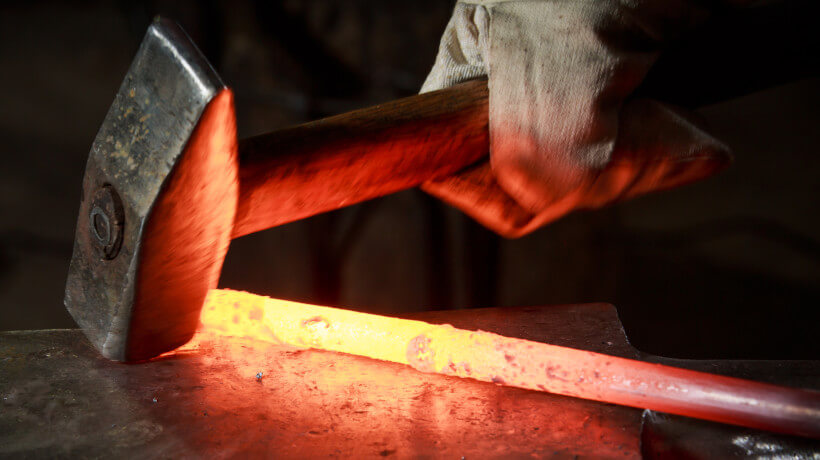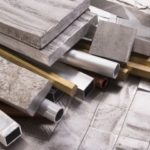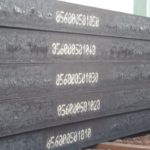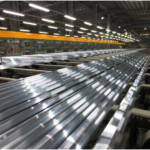Did you know that glass can be used as a lubricant in forging?
According to Ezine Articles:
“There are many items that are used in daily life and most of them are made with metals. For making these products, a process known as forging is carried out. Earlier, this process was performed as a labor intensive technique in which people used to prepare each piece with their hands. On the other hand, modern forging process has adopted various new techniques for carrying out this process. This process involves four commonly mechanized techniques that are adopted by manufacturers and they are press forging, drop forging, cold forging, and roll forging.
“Forging is basically a technique which involves heating metals to a temperature that is workable, and then working directly on the anvil with it. This process requires a high degree of strength and technical skill and is used by manufacturers for crafting various items like horse shoes, fine arts and other customized metal pieces.
“Forging can also be summarized as hot and cold forging. In these techniques the temperature does not facilitate use of organic based lubricants like soaps or minerals. However, these mineral oils get burned up and soap lubricants melt up at this high temperature. So, only selected lubricant systems are available for this process.
“Four common materials used as forging lubricants for aircraft industry are graphite, MoS2, synthetics, and glass. Among these lubricants, Mos2 is used only for warm forging process as its molecules get break up at a higher temperature. For this reason glass lubricants for forging process are used. Various kinds of glass such as refractory glass, extrusion glass, and insulating glass for forge process are used. Glass is one of the common forge lubricants and is generally used in forging process of stainless steel, which is an important metal in aircraft industry.
“It is used as a lubricant or a protective forge glass coating in hot forging process of this metal. Apart from stainless steel these glass lubricants can also be used for metals like titanium, tungsten alloys and nickel which are again vital for aerospace industry.
“During forge glass lubrication process, glass is used either in a slurry form or in a powdered form. Either it is applied on the metal in form of aqueous slurry solution or it is spread over the work piece in a powdered form. At much higher temperature these glass lubricants melts into high viscous solutions that is thick in nature. This leads to formation of sharp viscosity gradient which is molten glass around work piece and solid glass near dies. Creation of this viscous solution due to forge glass helps in separating metals from dies included in it.
“Glass is considered as vital ring rolling lubricants as they are very effective in carrying out this process. It can bear high temperatures as compared to other lubricants and for these reasons it is used for other metals also like copper, magnesium and nickel.”






